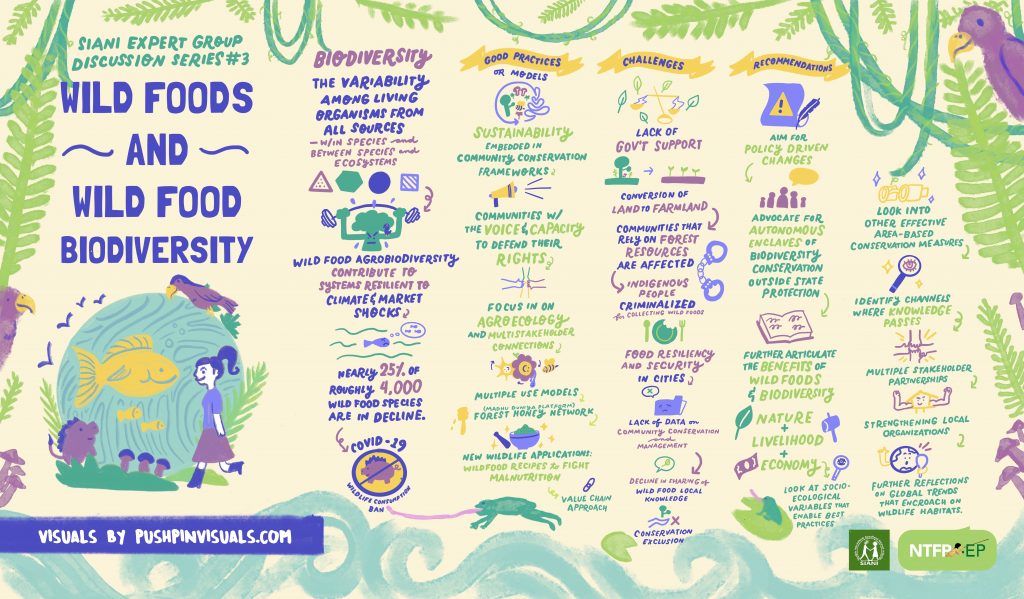Wild foods and biodiversity were the focus of the third in the webinar series organized by the SIANI Expert Group on Wild Foods, Biodiversity and Livelihood. The discussion series is part of the group’s efforts to consolidate traditional and ecological knowledge on wild foods and build a network of multi-stakeholder actors working on the area of wild foods, forests and inclusive conservation.
On August 18, 2020, Dr. Denise Matias, a research scientist at the Institute for Social-Ecological Research (ISOE) in Frankfurt, NTFP-EP Research Associate, and a member of the Expert Group Steering Committee, led the expert group dialogue on wild foods and biodiversity, which you can follow up with this video.
